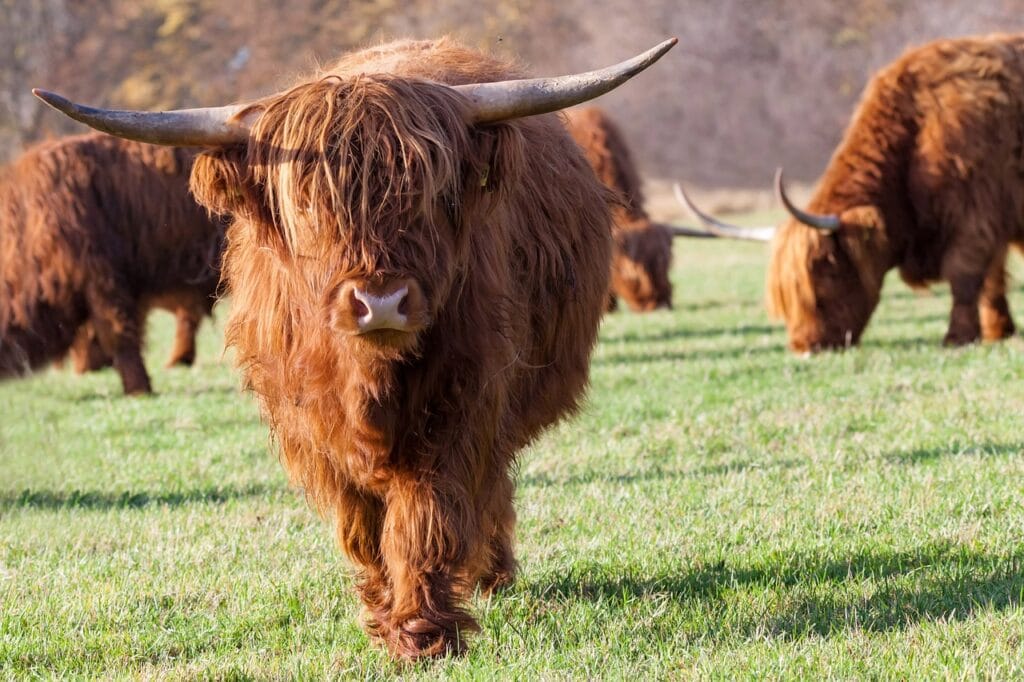Do Highland Cows Have Horns? Everything You Should Know
Highland cows are known for their long shaggy coats and photogenic faces — but what about their horns? Do Highland cows have horns, and if so, why? Whether you’re a curious animal lover or someone considering raising Highland cattle, this article has you covered.
(📖 Related: Fun Facts About Highland Cows)
Yes — Both Males and Females Have Horns
Unlike many other breeds, Highland cows are naturally horned regardless of sex. That means both bulls and cows (males and females) grow horns as part of their normal development.
This makes Highland cattle unique, as many other breeds are dehorned for farming reasons or only grow horns in males.
What Are the Horns Used For?
Highland cows use their horns for several purposes, including:
- Protection – Defending themselves or their calves from predators
- Social interaction – Establishing hierarchy within the herd
- Grooming – Scratching themselves or breaking brush
- Snow digging – Clearing snow to graze in winter
In their native Scottish Highlands, these uses were crucial for survival in rough terrain.

Do the Horns Hurt?
Highland cow horns are made of keratin, the same protein found in human nails and hair. They’re not sensitive — unless they’re injured.
Handled carefully, Highland cows are very gentle and don’t mind having their horns near people. But like any large animal, they should be respected.
Horn Differences Between Males and Females
Though both sexes have horns, their shape and size often differ:
- Males (bulls): Thicker, forward-curving horns
- Females (cows): More slender horns that often curve upward
This difference makes it easier to tell males and females apart, even from a distance.
Are the Horns Ever Removed?
While it’s technically possible to dehorn Highland cattle, it’s extremely rare. Their horns are part of what makes the breed distinctive and functional in cold climates.
Most Highland cow owners — especially those who show or breed them — take pride in keeping them horned.
(🔗 Source: Highland Cattle Society)
Handling Highland Cattle Safely
If you’re around horned Highland cows, be mindful of the following safety tips:
- Don’t approach from behind
- Give them space, especially during feeding or calving
- Learn their body language to avoid stress
That said, Highland cows are famously docile and well-mannered when treated kindly.
Final Thoughts
So, do Highland cows have horns? Absolutely — and they’re not just for show. These horns are a key part of what makes the breed so rugged, beautiful, and self-sufficient.
Whether you’re admiring them from afar or tending to a small fold of your own, their horns are a majestic reminder of their history and purpose.
Want to know more about their behavior and care? Explore more Highland cow facts here.
Disclosure: This post may contain affiliate links. HighlandCow.gifts may earn a small commission at no extra cost to you.
